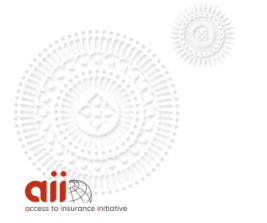Navigating the SDGs | A2ii-IAIS Public Dialogue
Navigating the SDGs | A2ii-IAIS Public Dialogue
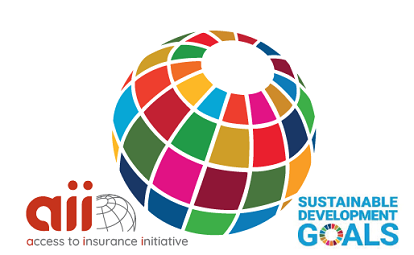
When you scrutinise the 17 Sustainable Development Goals (SDGs) and their accompanying targets, you will see inclusive growth, food security, climate action and health – among other goals.
But what you will not necessarily see is the mechanisms and tools behind those goals that deliver the change needed in order to attain them.
Access to insurance is just one of those mechanisms playing a vital role in attaining the goals and as her majesty UNSGSA Queen Máxima highlighted during her pre-recorded key note address to the recent A2ii-IAIS Public Dialogue: “To achieve the SDGs by 2030, it is critical to accelerate insurance as a risk protection mechanism."
Insurance as a risk protection and management tool is just one of those mechanisms playing a vital role in enabling and attaining the SDGs.
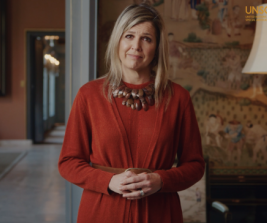
|
"To achieve the SDGs by 2030, it is critical to accelerate insurance as a risk protection mechanism." Queen Máxima, UN Secretary-General's Special Advocate for Inclusive Finance for Development (UNSGSA) |
During the A2ii’s Public Dialogue on SDGs, when participants were asked which one of the SDGs insurance had the most impact on, the responses varied between SDG 1 (No Poverty), 3 (Health & Well-being), 8 (Economic Well-Being) and 13 (Climate Action). The A2ii itself has recently published a policy note which identifies nine SDGs where insurance plays a key role.
Garance Wattez-Richard from AXA Emerging Customers demonstrated how an insurance product with the overarching goal of SDG 17 (Partnerships for Goals) can have a wide-reaching impact as well as directly supporting multiple goals. In collaboration with the Lead Foundation in Egypt, AXA EC have established a healthcare protection program with micro finance institutions (MFIs) for small business owners. For many business owners this represents their first formal insurance cover and exposed them to the benefits of how insurance, at an affordable price and with simple terms, can represent a safety net rather than an additional financial burden. What started as a small project has now grown to 600,000 covers with 90% of their customers being women. The intention is to now duplicate this service with other MFIs and expand this protection program into a family health cover. This is just one example of how insurance within the SDGs is multifaceted and is a clear contributor to the goals. Yet insurance is not always well recognised as a tool in achieving these goals.
When asked why insurance has been somewhat overlooked in the context of the SDGs, Susan Holliday from the IFC World Bank Group put part of the challenge down to “what gets measured, gets done”. While the 17 SDGs are broken down into 169 targets and 232 unique indicators, with the slight exception of SDG 8, most of the indicators do not capture metrics relating to insurance. This therefore makes it hard to measure both the impact and the clear link between insurance and the SDGs. Given the global relevance of the SDGs and the commitment of countries to track progress annually by 2030, the panellists all agreed that this need for clear links between insurance and the development goals is critical.
Industry players were also encouraged to avoid being too abstract when it came to the SDGs and instead focus in on certain goals and be more explicit on the role, they play in helping countries to meet the SDGs. As Governments use the SDGs as their roadmap for shaping and implementing national policy, understanding the SDGs will give industry insight into how the policy and regulatory environment in which they operate will evolve. However, this challenge is not contained soley within the industry as Christiaan Henning from the South-African Reserve Bank highlighted, supervisors also struggle with aligning the goals with their regulatory remit. He urged fellow insurance supervisors to identify the links between these goals and their strategic objectives. Supervisory mandates are clearly outlined but what is not clear is the link between achieving the SDGs and the risks in the insurance sector. Henning urged supervisors to upskill on the goals, to have a greater understanding of how they relate to the financial system and plug gaps in knowledge and data either through enhancing regulatory data or by instigating national repositories.
What is becoming increasingly clear is that more needs to be done, by all stakeholders, to accelerate insurance solutions. As Craig Churchill pointed out this is topical now because the pandemic has shown the limit of Governments and insurance must step in and see this as an opportunity. While the SDGs are a relatively new topic for the insurance sector the tools for addressing them are not – global action on the scale of the SDGs requires cross stakeholder collaboration. As Peter Braumüller, Chair of the A2ii and IAIS Implementation Committee concluded in his opening remarks “the challenges we are facing both now and those on the horizon require us to work collaboratively through a truly multi-stakeholder approach”. The IAIS and the A2ii been championing this approach both in their work together in advancing financial inclusion and with other partners such as the Sustainable Insurance Forum and the IDF.
To view the recording of the Public Dialogue on the SDGs, click here.
To download the policy note 'Insurance and the Sustainable Development Goals – why it matters and how data can help', click here.
Share this article
Also in SDGs
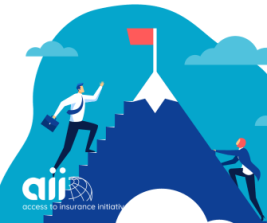

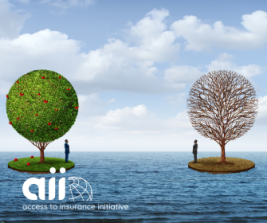
Authors
Posts by Author
Topics Cloud
Subscribe to our list
Receive notifications when we publish new blog entries
Subscribe here
